Following China’s digitalization, the e-commerce market has naturally been growing exponentially while embracing new technologies and innovations. Chinese consumers are more than ever using online platforms in their daily lives. This has contributed to the growth and success of companies like Alibaba, with its shopping platforms Taobao (consumer-to-consumer) and Tmall (business-to-consumer).
Today we will take a deeper look into Alibaba’s Tmall, aka China’s biggest e-commerce platform in terms of revenue. Hopefully, this guide will help you to have a further understanding of Tmall for cosmetic brands, as well as the best practices to succeed on the app and attract Chinese consumers.
Tmall: The Leading E-commerce Platform in China
Founded in 2008 under the famous Alibaba group holding Ltd. (Jack Ma), Tmall (天猫), is a subsidiary of the e-commerce website Taobao (淘宝网). Its target market is primarily B2C (Business-To-Consumer). Tmall’s concept is ambitious and wise as it allows both local Chinese and international companies to sell their products through the platform in Mainland China, Hong Kong, Macau, and Taiwan.
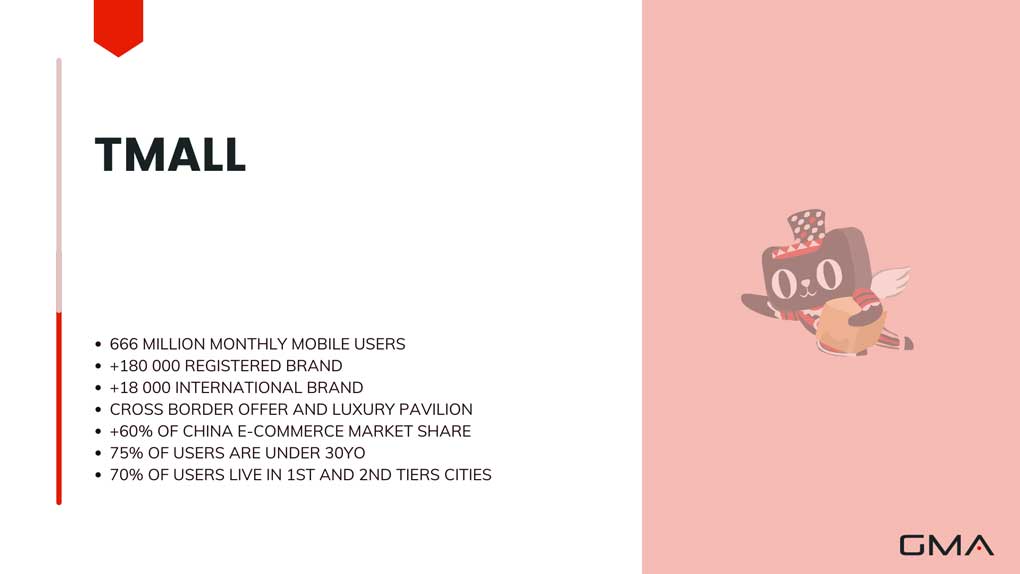
Tmall stands out from its competitors thanks to its strict standards in terms of quality and renown.
Chinese consumers are spending on average 7 minutes per day on the app, which is more than twice the time spent on JD.com.
Differences between Tmall and Tmall Global
For cosmetic brands that are looking to enter the Chinese market, it is important to understand the differences between Tmall and Tmall Global.
Tmall: The Platform for Companies Within Mainland China
Tmall enables businesses to sell their products directly to millions of Chinese customers all across China. As an open platform marketplace, Tmall provides the infrastructure to host your storefront and unfiltered access to hundreds of millions of shoppers. However, unlike Tmall Global, you will have to have an entity in China in order to be able to sell on Tmall.com.
Tmall Global: The Platform for International Companies Outside of China
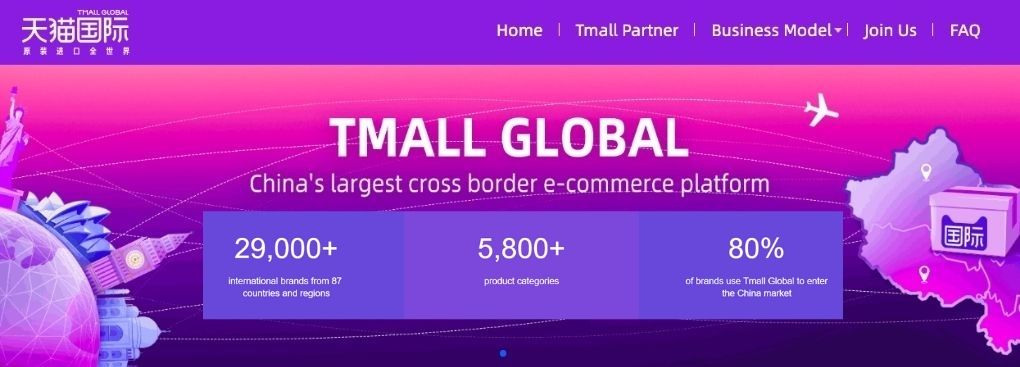
Launched in 2014 by the giant Alibaba Group, Tmall Global (天猫国际) is the international version of China’s leading online marketplace: Tmall and the best China entry door for brands that don’t have a Chinese entity. Known as the most famous and largest cross-border B2C platform, Tmall Global (aka Tmall.hk) offers both wholesale (B2B) and retail (B2C) models for overseas merchants and has evolved to be a trusted platform to purchase imported products.
To understand Tmall’s popularity, we can see that there are more than 20,000 international brands that are registered on the platform, in more than 77 countries. The platform also has a large variety of products, with more than 4000 categories. Tmall Global has been the 6th most used online store in China, and 65% of Chinese customers use its app on their smartphones. 78% of Tmall Global’s online consumers also use Tmall.com.
Thus, Tmall Global allows international businesses with no physical presence in mainland China – which means that you don’t need to have a physical store or a warehouse, you don’t need to be registered with the Chinese authorities, and you also don’t need to have a Chinese business license – to set up a Tmall Global store.
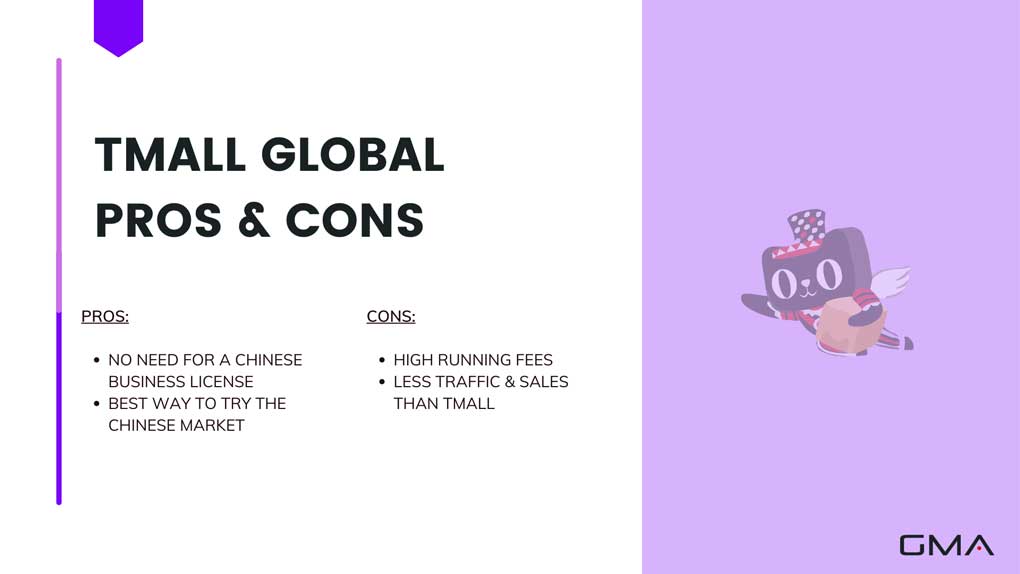
Tmall Global platform’s aim is to source the latest and most popular overseas products for Chinese consumers and on the other hand, help overseas retailers capture Chinese consumers’ booming appetite for imported products.
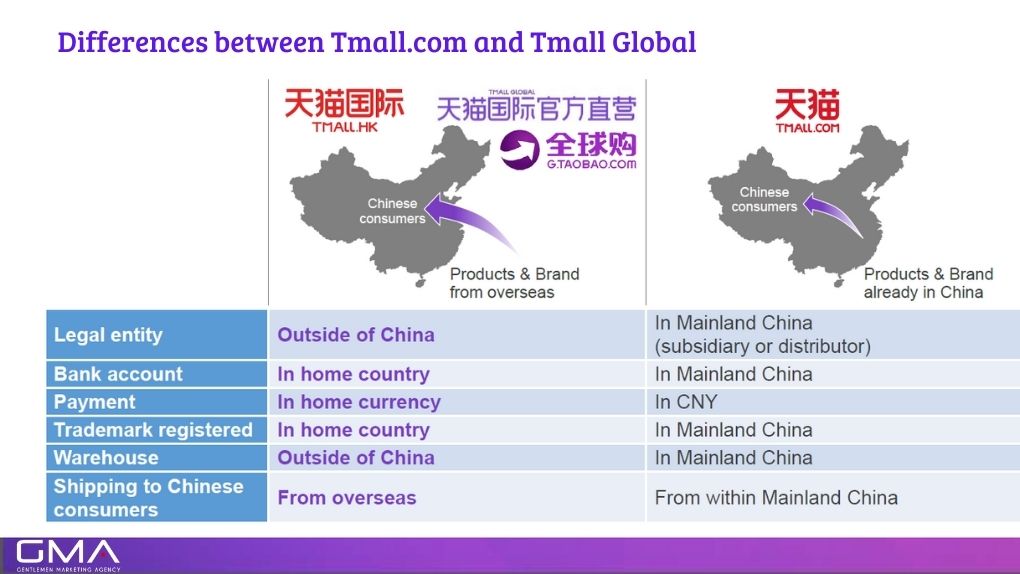
How to Sell Cosmetics on Tmall and Tmall Global?
In China, the possibility to open a shop on e-commerce websites does not only depend on your motivation but mostly on how your brand appears and the potential, it will have on the platform.
If you want to get the opportunity of selling on Tmall, one of the most consulted e-commerce websites in the world, you will need to show what you have to offer and convince Tmall that you have the potential to attract Chinese consumers’ interest.
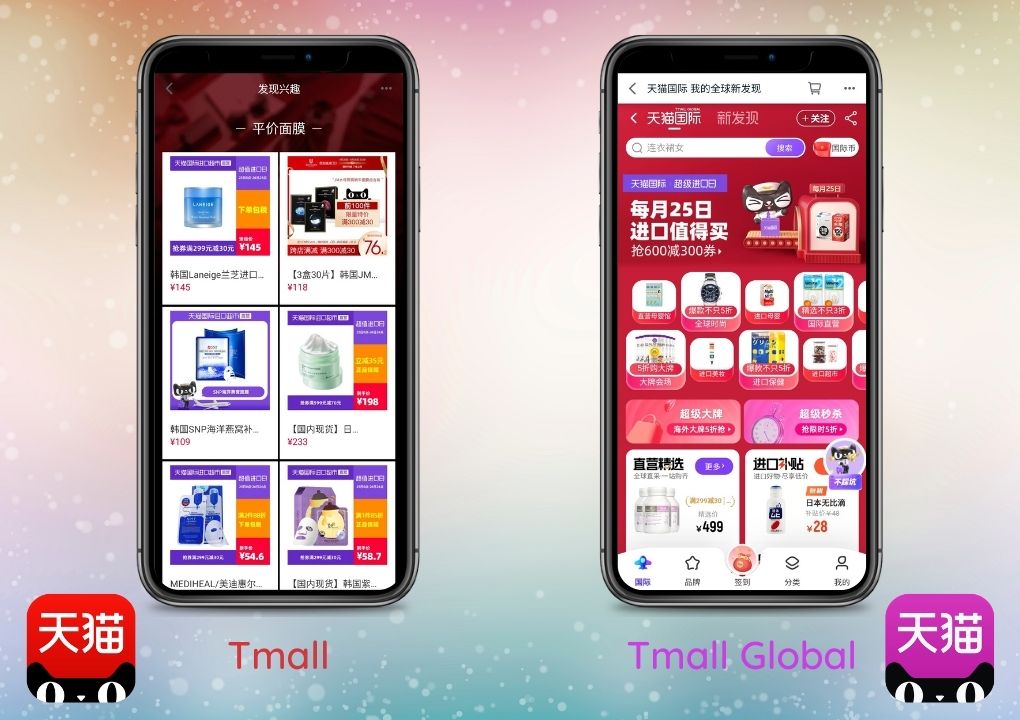
Requirements to register as a merchant on Tmall
To register your company on Tmall, you have to know that Tmall requires its merchants to have official Chinese documents and a Chinese bank account as well as to have your products registered with the local authorities.
This is the reason why most of the foreign brands you’ll see on Tmall tend to be international and F500 brands that already have an entity in China (We can help you register your company in China and get a license for your products).
List of main requirements common to both Tmall.com and Tmall Global:
- Submit product description information and wait for verification. This lasts up to 10 working days.
- Register an Alipay account abroad. To apply offline takes about seven to ten business days.
- Sign the agreement and pay the annual service fee and deposit. This lasts about seven to ten working days.
- Open the shop. This includes registering an account in Tmall Global, performing a test, completing the necessary information, adding products, and finally launching the store.
Do I need a business license to register my beauty brand on Tmall?
A lot of our clients are wondering if they need a business license in order to sell on Tmall and Tmall Global. In fact, as mentioned earlier, Tmall is made for companies that are already established in China, so you will need to have a business license if you want to sell on Tmall, in order to prove that you are in China.
On the other hand, if you want to sell on Tmall Global, which is made for foreign companies that are not in China, then it won’t be necessary to have a business license.
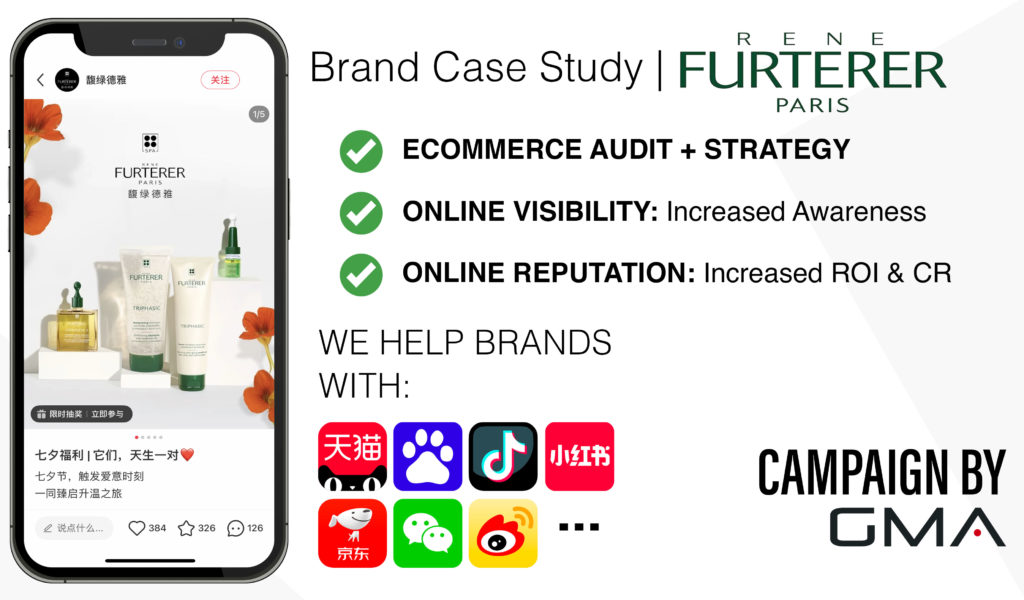
How does our agency help you register on Tmall Global?
Applying for Tmall requires time and money. It is a long process that is entirely in Chinese, which can be difficult for you if you don’t speak the language. By working with a professional agency, you won’t have to do all of that.
As a digital marketing agency (coupled with being a TP), we can easily open an official account for you on Tmall Global. We also offer Chinese language customer support and Chinese international customs support on the Tmall Global platform.
Here are some of our Tmall services
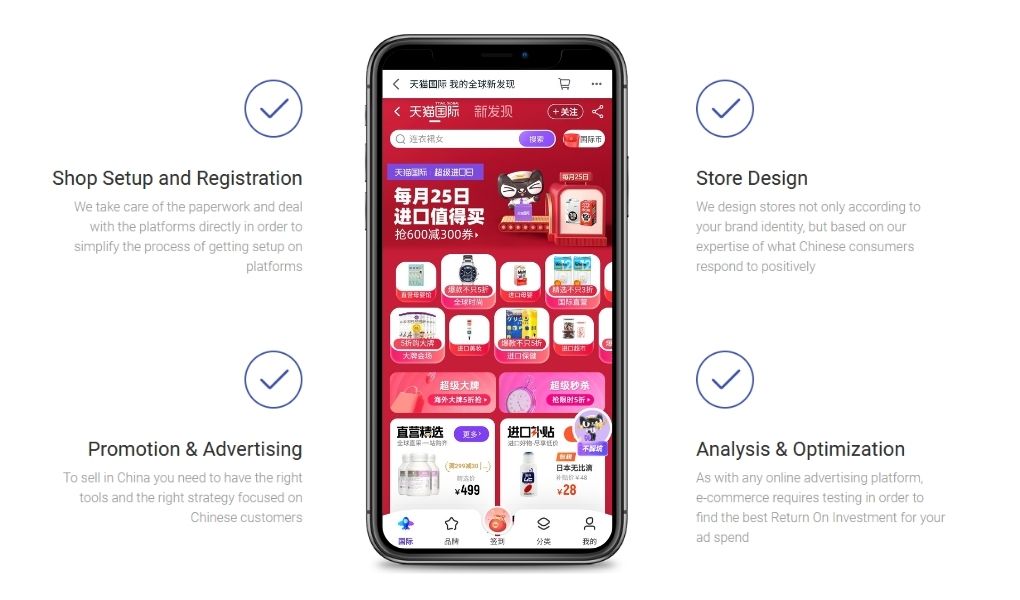
Steps for beauty brand to open a flagship store on Tmall
Companies that intend to set up on Tmall Global must have a corporate entity outside Mainland China. The trademark must be registered abroad and have qualifications for retail sales abroad. They must also have good credit as well as recognized and operational results abroad.
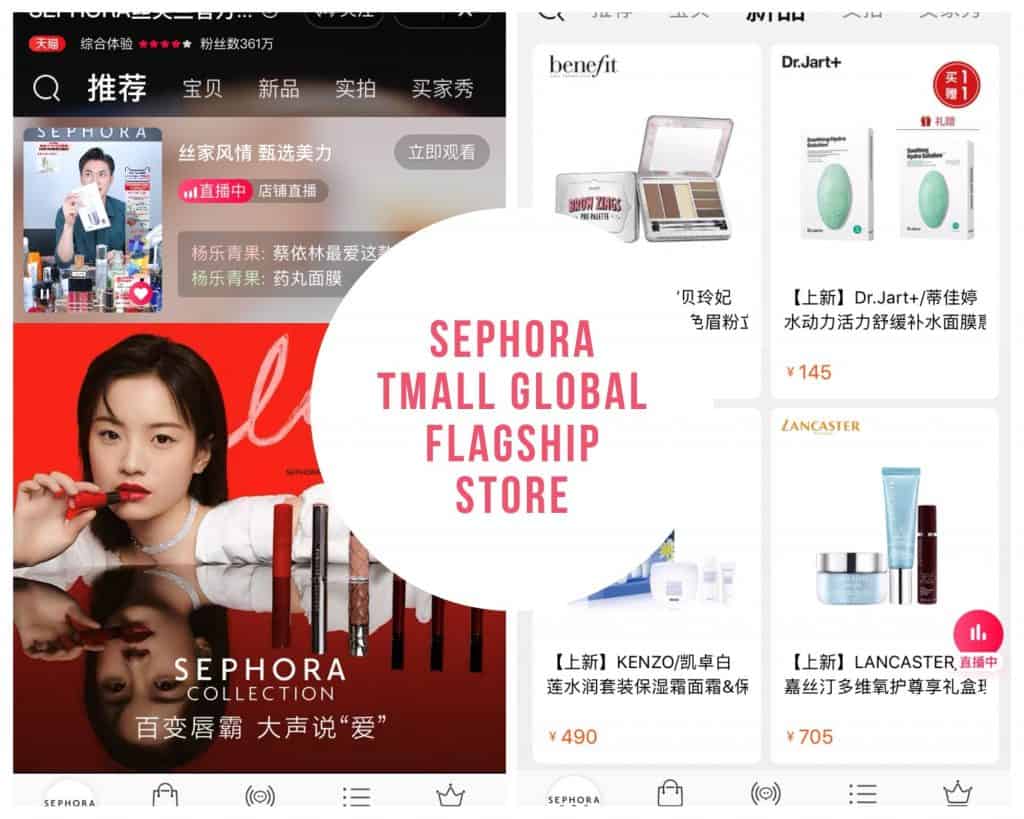
Beauty brands requirements to open a flagship store on Tmall :
- Brand owner outside Mainland China (for Tmall Global)
- Qualifications for foreign retail sales
- Ownership of the authorized brand/agency/vouchers
Tmall flagship store and Tmall Global flagship store may open under the following circumstances:
- The store sells and acts on the behalf of a single brand that is owned by the merchant opening the store
- The store sells and acts on the behalf of multiple brands that are all owned by the merchant opening the store
- The store sells and acts on the behalf of a multi-brand marketplace (service class trademark) owned by the merchant opening the store
Criteria that you have to take into account when trying to enter Tmall:
- The company must have more than 2 years of experience, with annual sales exceeding $10 million.
- B2C Brands must be aimed at international consumers’ ownership or Authorized Agencies
- Most popular sectors: Cosmetics, Mother and baby clothing, care products, clothing, footwear, and accessories.
- Internationally renowned brands’ products as well as luxury goods
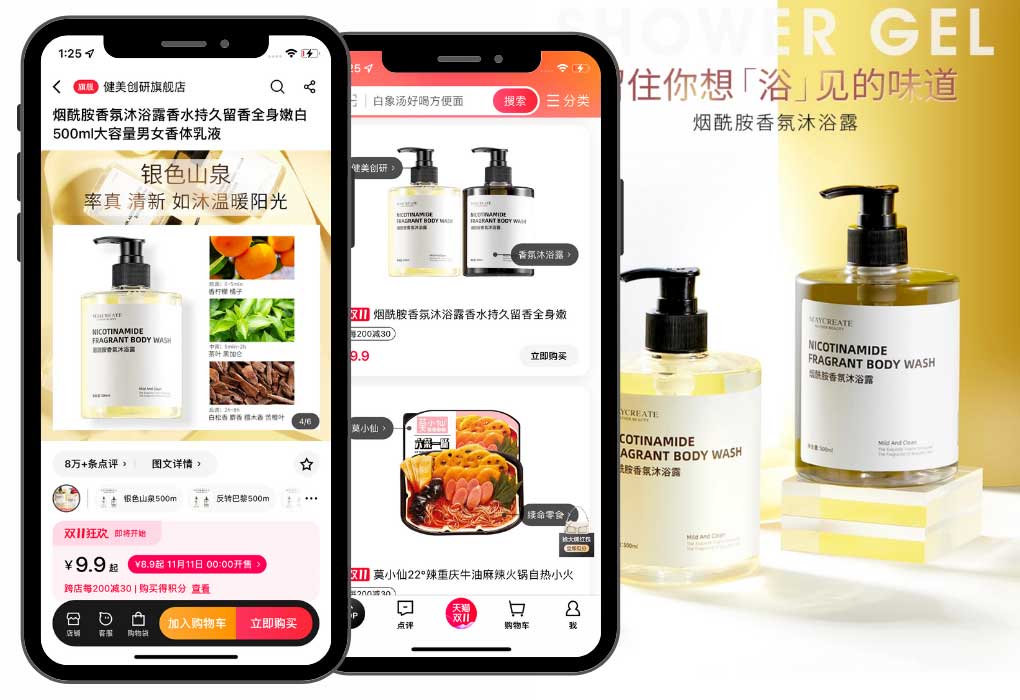
Tmall’s requirements also include:
- Products from a foreign country and sold internationally must be inspected by Tmall Global Security and will obviously pass through the Chinese Customs’ Stage
- The presentation page of the product must be written in Mandarin Chinese, using international measures and size.
- Chinese customer services: You have to provide proactive customer service in Chinese. Customer experience is Tmall’s number one priority. This is also why the entry process is so complex and selective.
- In terms of logistics, Tmall requires that products must be shipped within 72 hours after the order. It is often preferable to choose direct delivery or delivery through certified warehouses in China that will then dispatch it and send it to consumers. Don’t forget that order tracking for all products is mandatory
- After-sales services must be handled in China for consumers to return products
How to increase your conversion rate and brand awareness on Tmall?
Tmall Paid Ads
Advertising in China requires a different approach from what we are accustomed to, especially on Chinese e-commerce platforms such as Tmall. However, some tools of advertising are quite similar to ours.

Depending on your budget and reputation, you will be able to display your products on Tmall’s homepage, and even advertise your brand on a banner ad, as you can see in this ad for the French company Sisley. If you want to have more pieces of information about advertising on Tmall.
Developing your cosmetics brand e-reputation in China with omnichannel strategies
Driving traffic to your store won’t be an issue, but getting those first sales can be tricky. In order to do so, you’ll have to work on your online presence and reputation. Indeed, Chinese consumers are extremely suspicious of cosmetic brands that they have never heard of before.
They will most of the time rely on other users’ experiences, recommendations, looking at reviews. Word-of-mouth is actually one of the best ways to attract new customers, and this is why your brand e-reputation is essential when it comes to entering the Chinese market.
You will also have to be careful when it comes to consumers’ feedback on your products, as it will influence potential consumers and even e-commerce platforms such as Tmall. Get a few hundred sales, encourage your customers to give reviews and you’ll be ready to sell your cosmetics in China.
Develop a Chinese website & work on your Baidu SEO

Having a Chinese website is mandatory if you want to enter the Chinese market. Of course, you will be able to attract much more Chinese consumers than having a website in English. Having a Chinese website is also necessary if you want to appear on search engines like Baidu.
Ranking on Baidu is as important as ranking on Google
As the most popular search engine in China by far, Baidu simply is a step you can’t skip in China. However, increasing your website’s ranking on Baidu requires a slightly different way of thinking about Search Engine Optimization (SEO) compared to what you might be used to with Google.
Considered the “Chinese Google”, Baidu is the most popular Chinese Search Engine and stands as the 5th most consulted website in the world. As of 2023, it represents around 70% of the Chinese market share. You can also advertise on Baidu with pay-per-click ads for example.
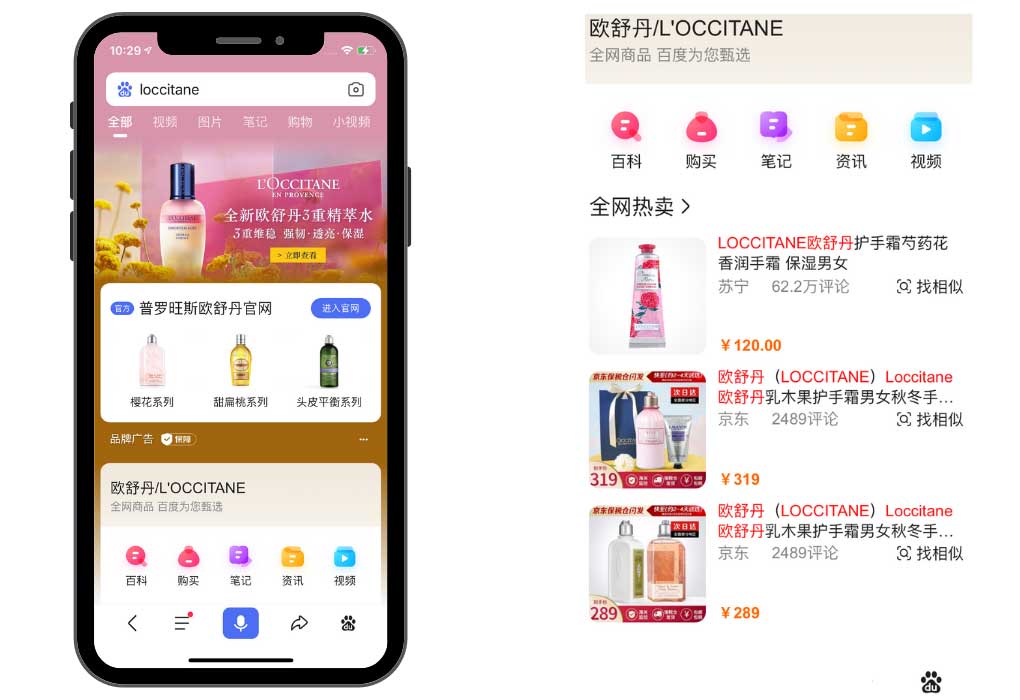
Baidu is an opening window to enter the Chinese market as consumers will do their research on it in order to discover your brand. If you are not visible through the first pages, you won’t probably get much traffic. That’s why working on Baidu’s SEO is as important as setting up your e-commerce online shop.
In order to do it successfully without wasting too much time, you can contact specialized experts such as GMA. We have helped many companies increase successfully their rank on Baidu, gaining much traffic, and thus, much more clients.
Chinese social media for brand awareness & engagement
Social media are omnipresent in Chinese people’s daily life. Thus, for foreign retailers having an official account on Chinese social networks is key when implementing your brand in China! Be careful, foreign apps such as Facebook, Twitter, Instagram, Pinterest, etc are not available in China. You will have to use Chinese social media to promote your products and your company.
WeChat: the best social media to retain Chinese consumers and promote your online store
Introduced in 2011 by Tencent, WeChat is one of China’s top tech companies. With one billion monthly active users, it is the most popular messaging app in China but it also has a large ecosystem of services.
Thanks to WeChat, you will be able to create H5 Brochures, promote your products through Wechat moments, and on top of that, you will also be able to encourage users to purchase products directly on your Tmall store.

Worldwide, WeChat is one of the leading social networks, ranking sixth in terms of active user number, becoming a lucrative marketing online platform with its plethora of different functionalities. Its success relies on the fact that Wechat was able to integrate almost all the features that made the success of the world’s most popular networks.
Weibo: the best social media to increase your visibility and brand-awareness
As its name indicates (“micro-blog”), Weibo provides micro-blogging services and is often compared to Twitter. However, it has evolved into a microblogging hybrid with Instagram, Pinterest, Reddit, and YouTube over the years.

As of 2023, Weibo has 56.8% of the Chinese microblogging market in terms of active users, and 86.6% in terms of browsing time over Chinese competitors such as Tencent and Baidu. It has more than 511 monthly active users and millions of posts per day, making it the largest Chinese-language mobile portal. Almost all Chinese millennials are using this social app in order to follow celebrities, KOLs, brands, read news, etc.
With the majority of foreign brands having an official account on Weibo, it is one of the Chinese social media platforms you want to incorporate into your marketing strategy. To do so, you can contact us and our team will take care of it.
Xiaohongshu: The ideal app for cosmetic brands
Founded in 2013, Xiaohongshu (小红书) also known as ‘The Little Red Book’ and ‘RED’, is a social media and one of the world’s largest community e-commerce platforms. Over the years, it has grown to become China’s foremost shopping platform in terms of cosmetics & beauty, fashion, and luxury products.
As of 2023, Xiaohongshu is boasting over 300 million registered users and 85 million monthly active users. It was also valued at more than USD 3 billion in 2018 and has the support of giants like Alibaba, Tencent, Zhenfund, Genesis Capital, etc.
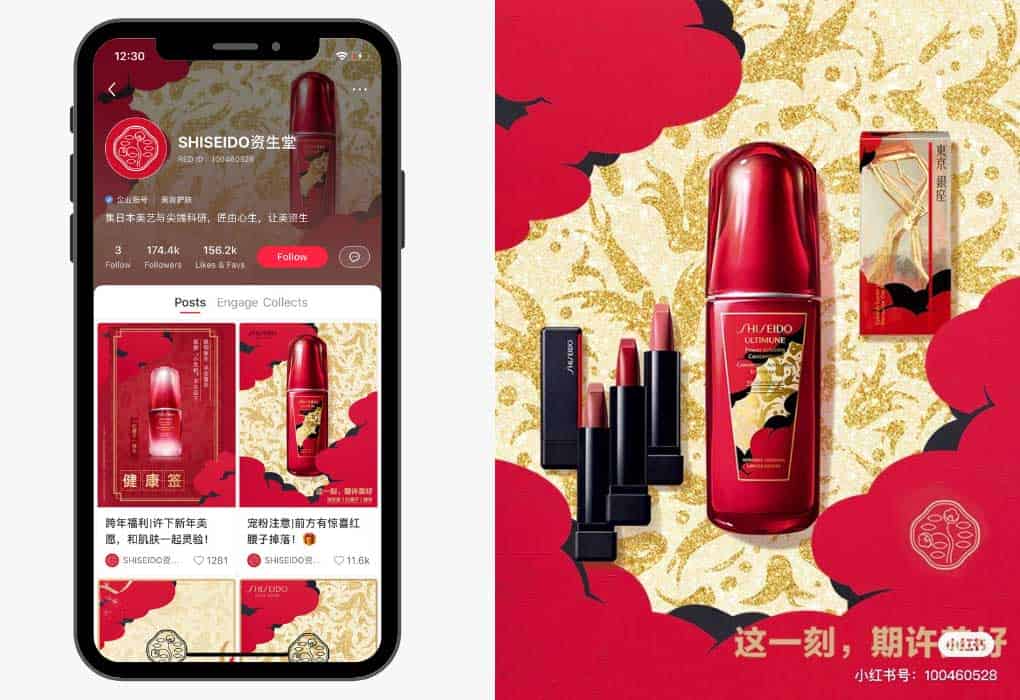
Xiaohongshu (aka RED) is not just a social media app, users can also purchase it. As a specialized app for cosmetics and 80% of its users are young Chinese women, Xiaohongshu benefits from powerful word-of-mouth.
With users mostly relying on KOLs recommendations instead of just buying products from famous international brands, high-end brands have to conquer KOLs first if they want to attract quickly mainland Chinese consumers.
Therefore, using Xiaohongshu to promote your cosmetics will also contribute to increasing your brand awareness, and then increase as well your sales on Tmall
Live streaming is the new trend for cosmetic brands in China
In the past few years, e-commerce live streaming, a combination of streaming video and e-commerce, has become increasingly popular in China, especially during the Covid-19 pandemic. It has quickly become a valuable tool for cosmetic brands and retailers, thanks to which they can engage consumers and showcase their products.
Live streaming allows you to show the products in a realistic and detailed way, increasing the reliability of your brand and product among consumers. You should know that Chinese people tend not to trust brands and products they don’t know.

Through Tmall’s live streaming functionality, you have the possibility to sell your products directly on the app. Customers have the opportunity to buy your products on the app by clicking on the icon displayed during the live stream, which will direct them to your brand’s Tmall store.
We are your Tmall Partner in China: Contact us to export and sell your cosmetics on Tmall
With China being the world’s biggest market in terms of cosmetics, many brands are trying to enter the Chinese market in order to conquer a wide audience. However, as demonstrated in this article, you will have to understand all of its subtleties in order to sell your cosmetics on the most popular e-commerce platform in China.

You’ll need to be prepared beforehand, and prepare the bunch of documents required to register on the platform. Collaborating with an agency specialized in the Chinese market is the best way to achieve your goal and increase your Return On Investment. As all companies are different, the marketing and advertising strategy must be tailored according to their needs and within their financial means.
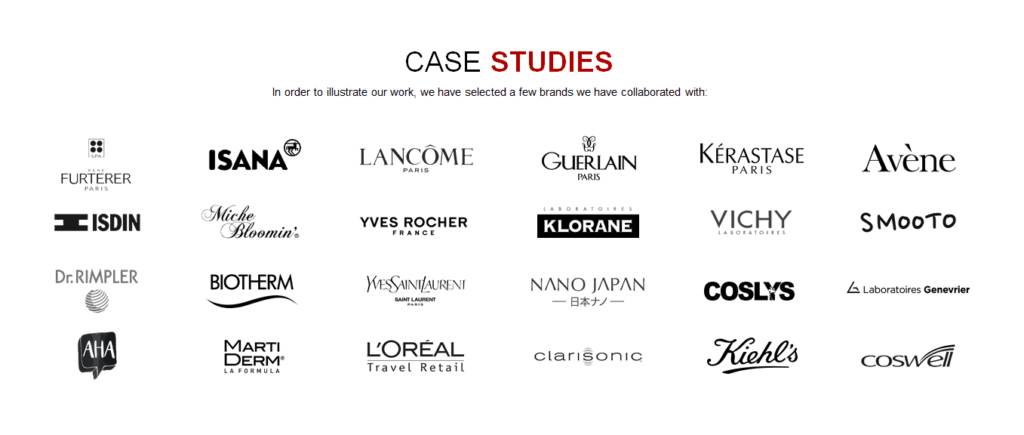
As a Digital Marketing Agency established in China for almost 10 years, we were able to break through the Chinese market, helping hundreds of foreign brands enter the Chinese market through e-commerce platforms (Tmall, Taobao, JD.com, Kaola, etc).
Proud of the success of our collaboration over the years, we are constantly trying to help brands expand their activities in China. So, if you are interested or if you have questions about selling your cosmetics in China through Tmall, do not hesitate to contact us and we will reply within 24 hours.


13 comments
Nicolas
We have a Group about Business in China where brands chat with each other
https://www.facebook.com/groups/1617494688463171/
pier
would you recommend Tmall Global to start selling a very particular cosmetic line from Italy ?
admin
yes
LiliFromEurope
So you need to have 25k € as a brand to join and make an account on tmall (as a company)? Do I understand it right?
mike Chen
I am surprise, but few Brands use tmall to export to China, very “old” mentality of old civilization like Europe and USA
Breto
Tmall is a great tool, but really cost too much.
25k € deposit
+10k fees
TP need to pay at least 100k€
5% commission to tmall
1% to Alipay.
And you sell only via discount.
How brands can make money ?
Should sale a lot mean invest a lot in Ads.
Brands lose money, but Tmall never lose money like the Shopping Mall
Liping
most Chinese have taobao on their mobile and buy on tmall actually.
Tmall try to kill taobao and boost tmall.
Why ? because brands have to pay on tmall.
Brands should invest in their visibility, where small taobao shops will always spend low money.
Alibaba is smart. (very smart)
Wei Li
Tmall is a great plateform for many brands.
I know many friend making a lot of money there.
Yes you need to invest money, but if you have great brands , great product you can really reach ALL china
Marco
Alibaba is doing a lot of Promotion for tmall gloabl in Italy, but many people try and are disappointed by Tmall Global.
Elena
Thank you for this detailled Article. Are you a Tmall Partner Agency ?
admin
We are not, but we work with TP to integrate brands on Tmall.
Sonia
It is great article, most of companies in Europe do not know thta you can export via Tmall… it is crazzy.
admin
Yes, but Alibaba is doing a great sensitive campaign specially in USA with visit of Jack Ma to The US president.